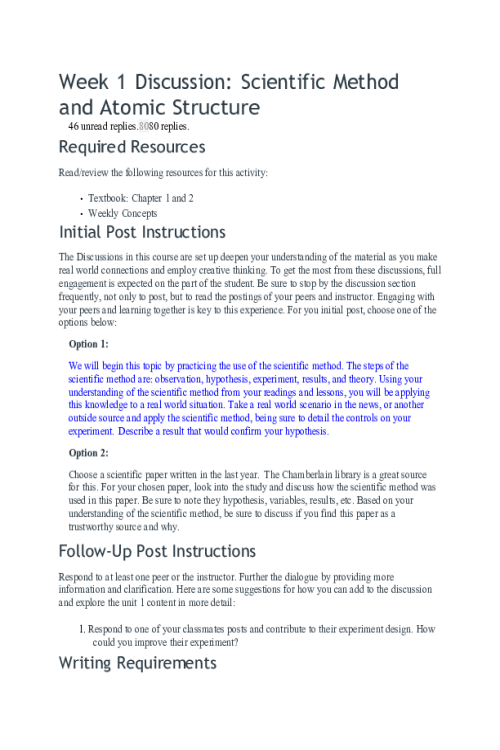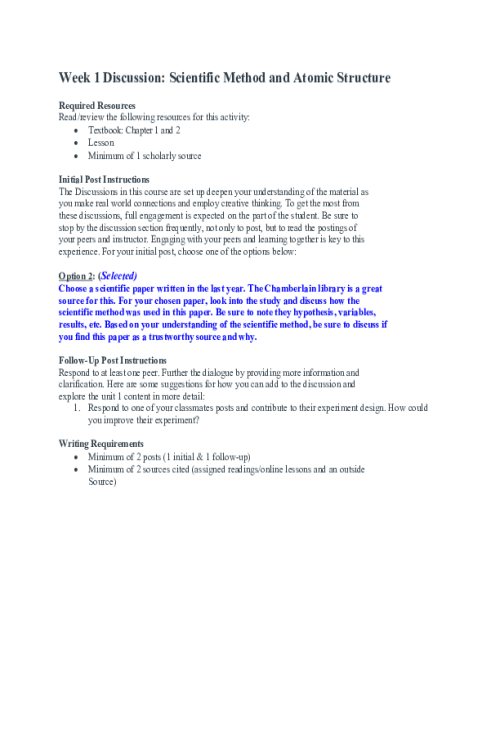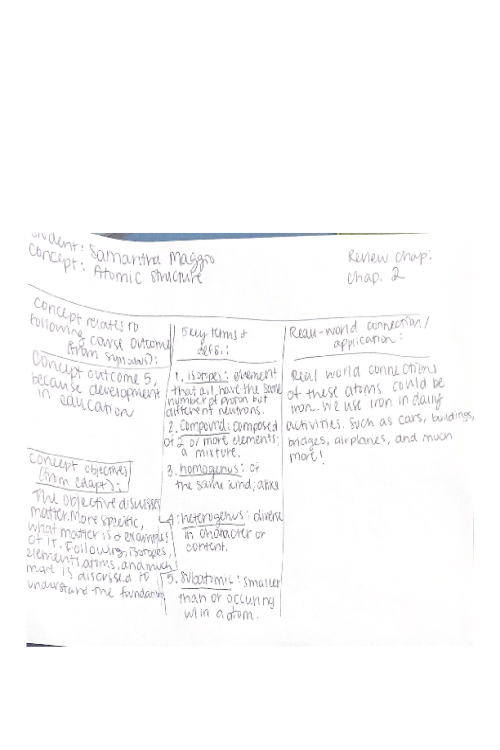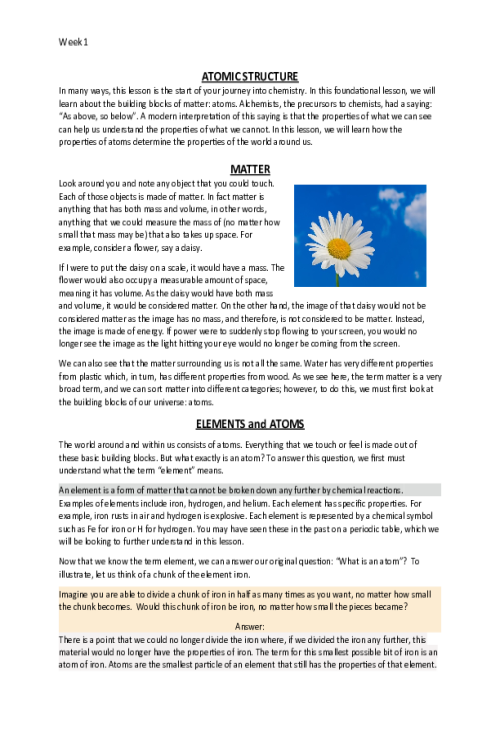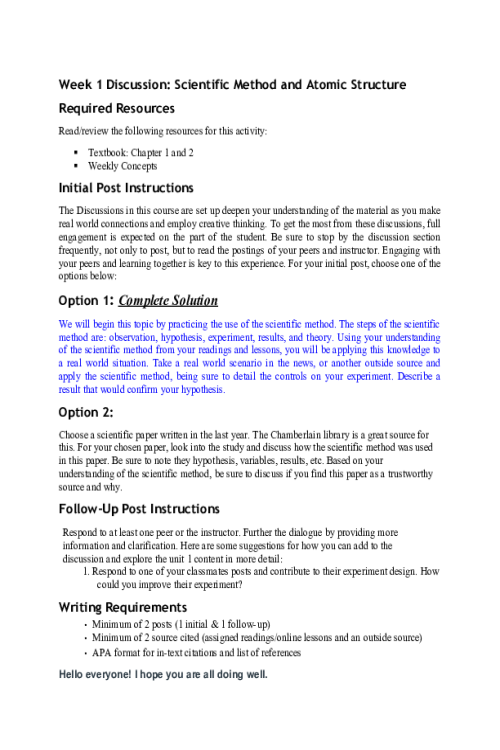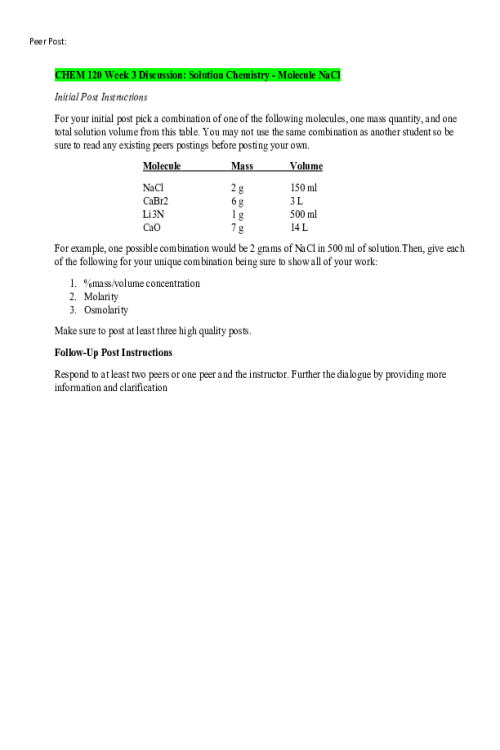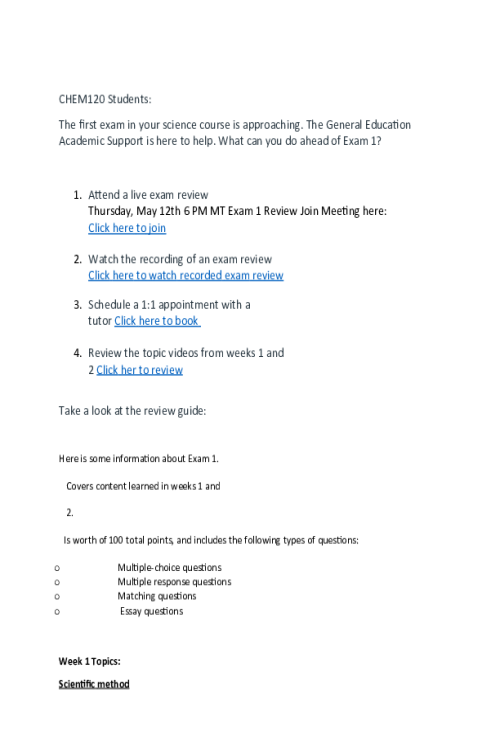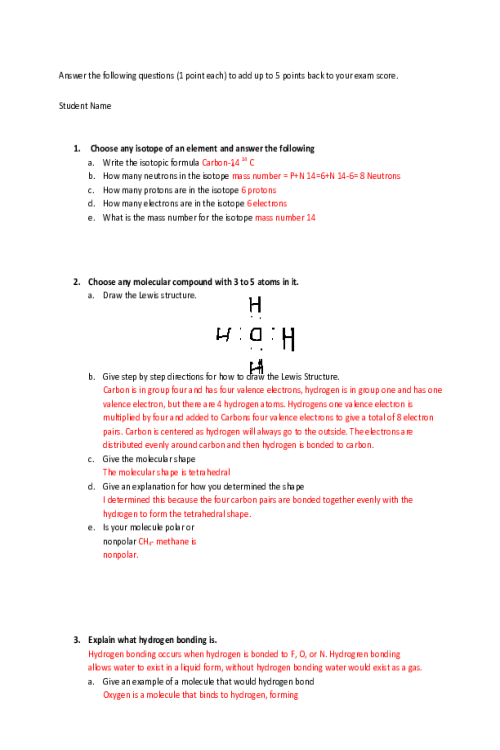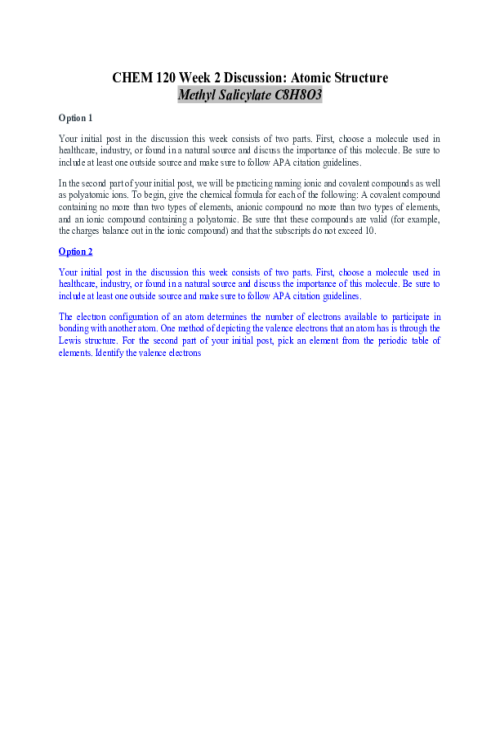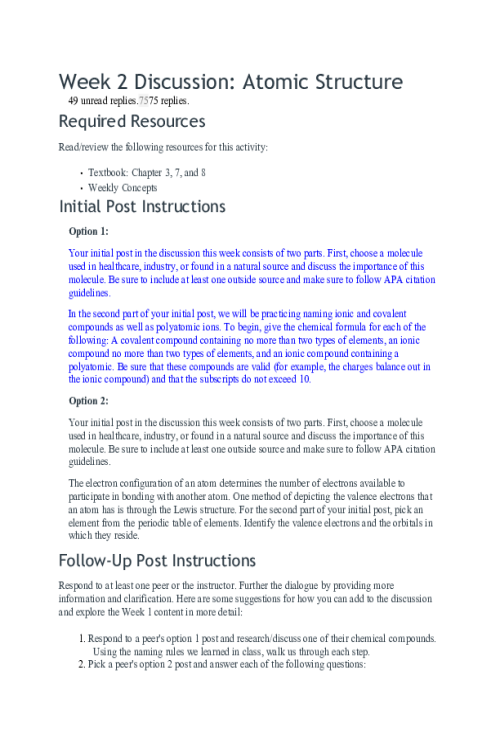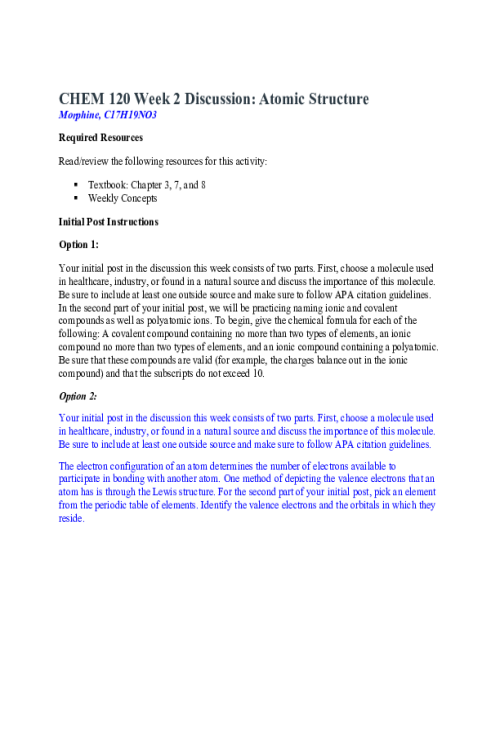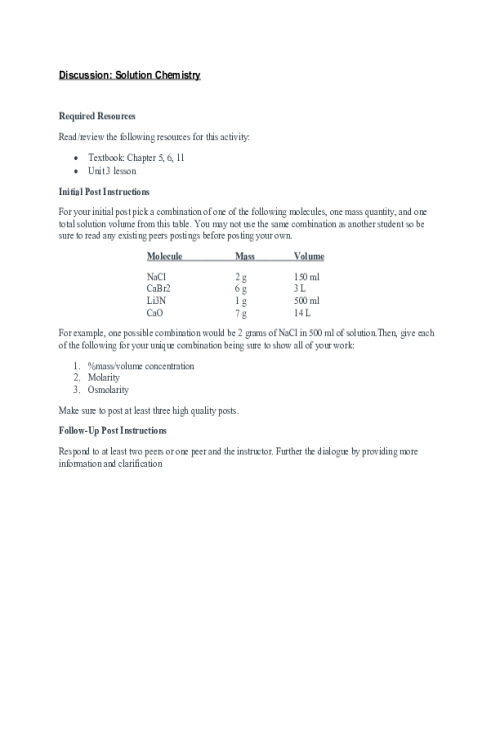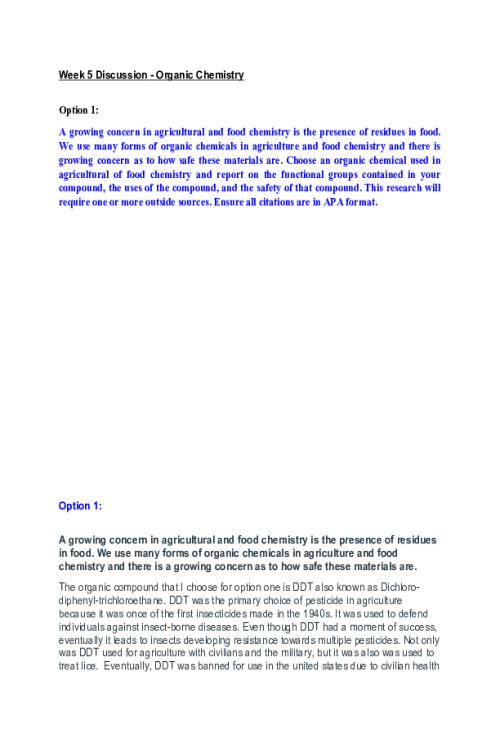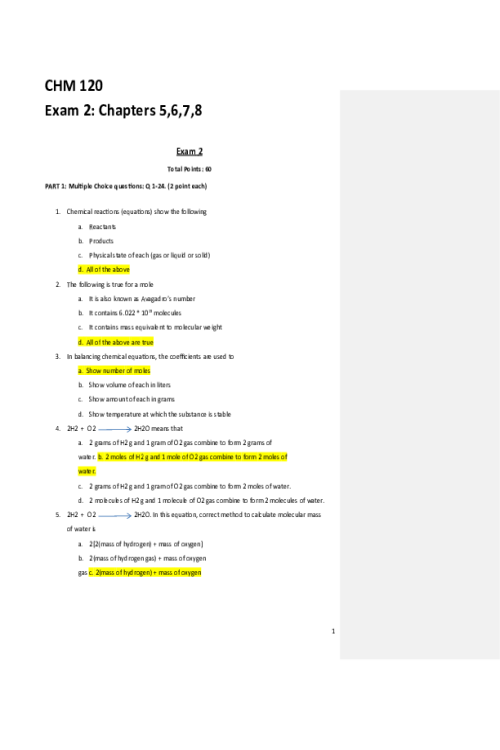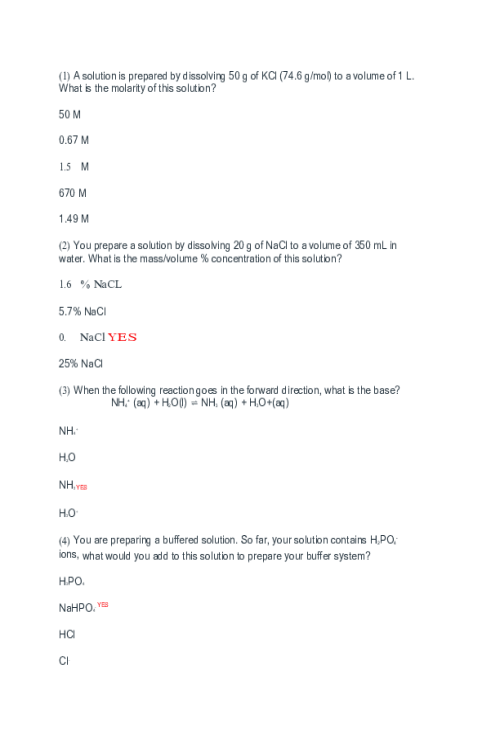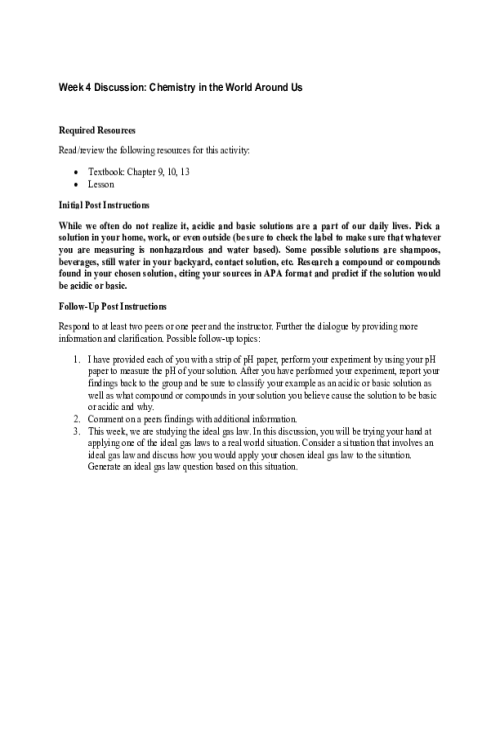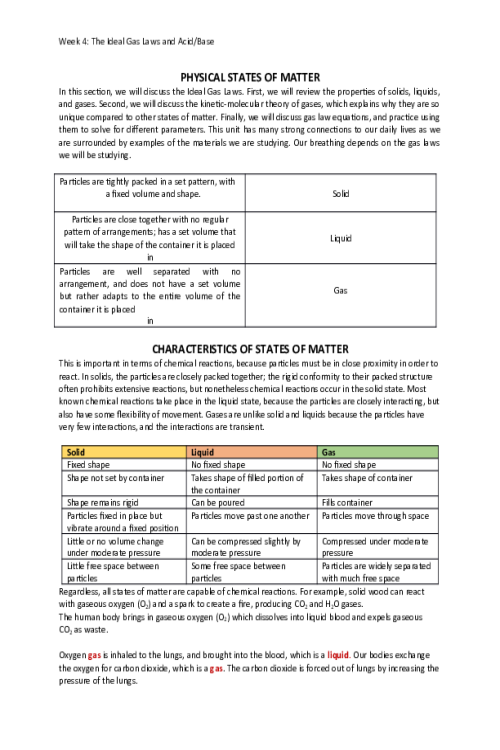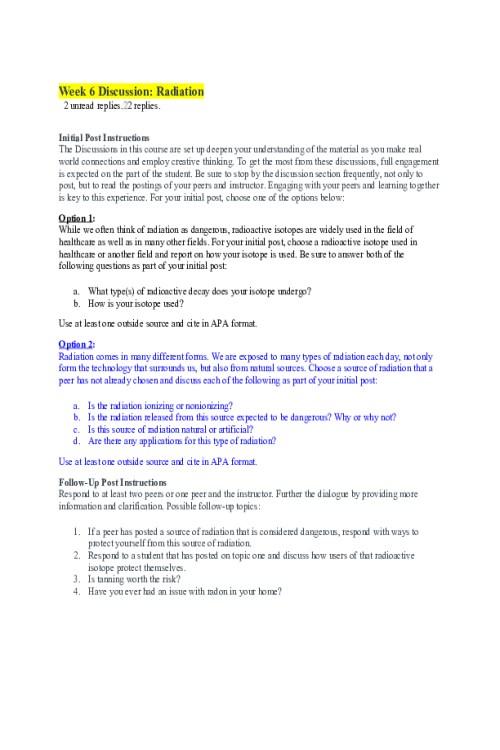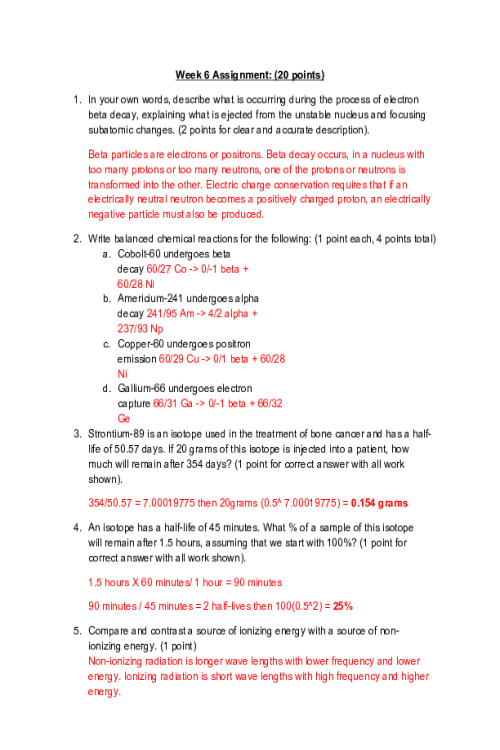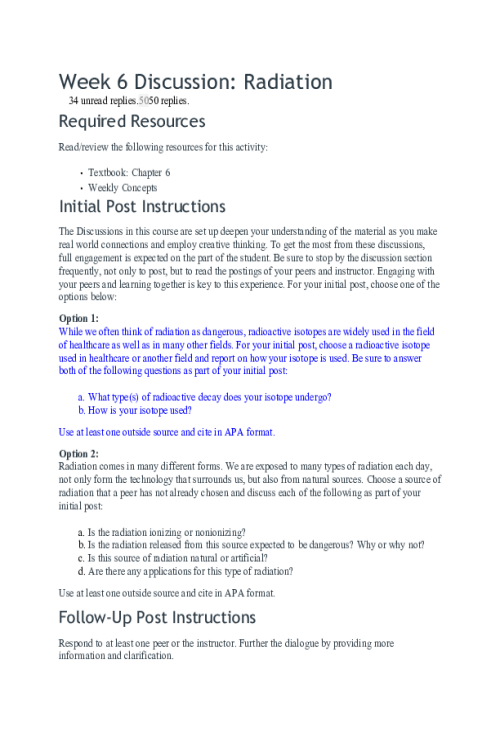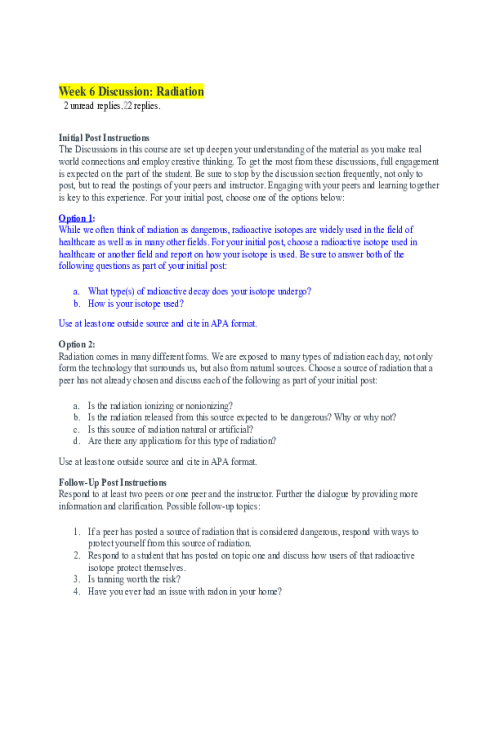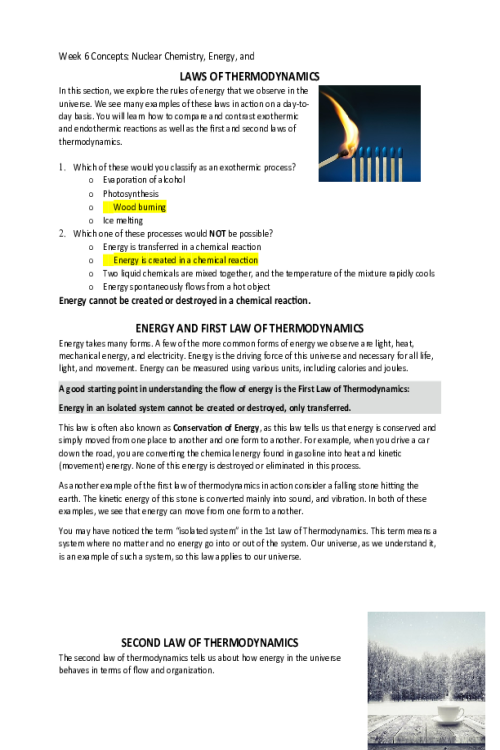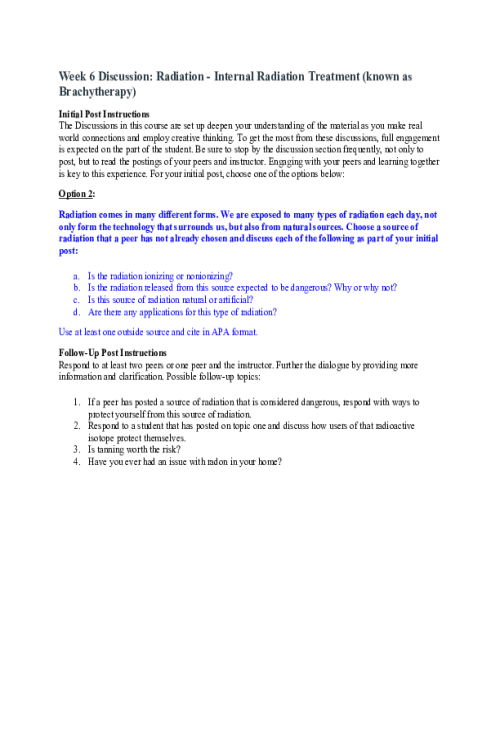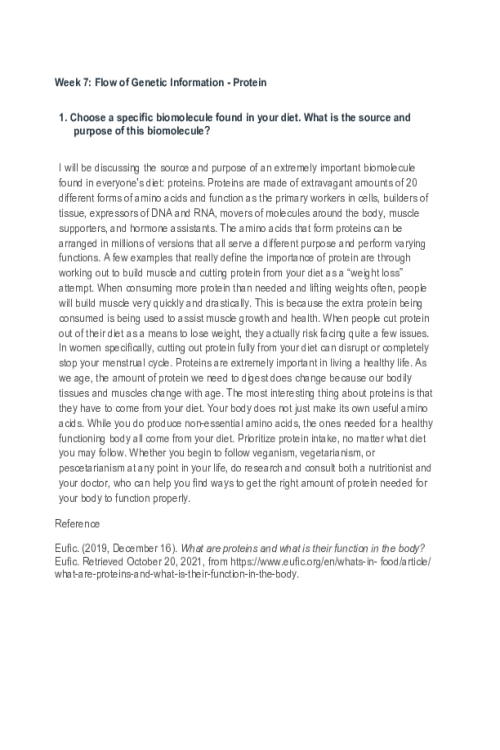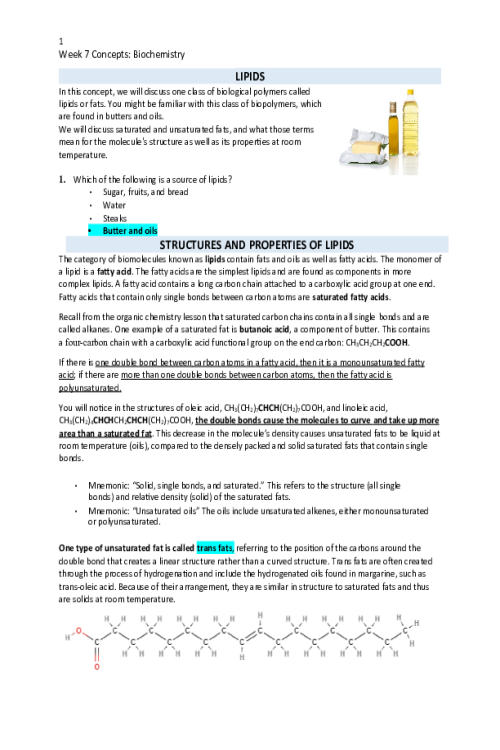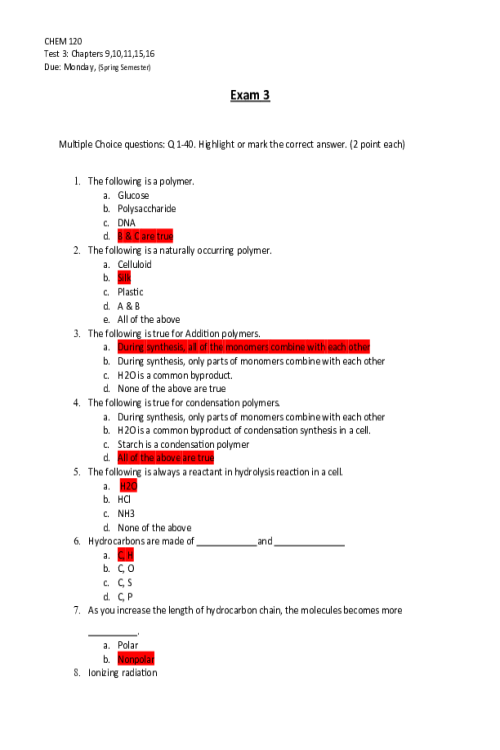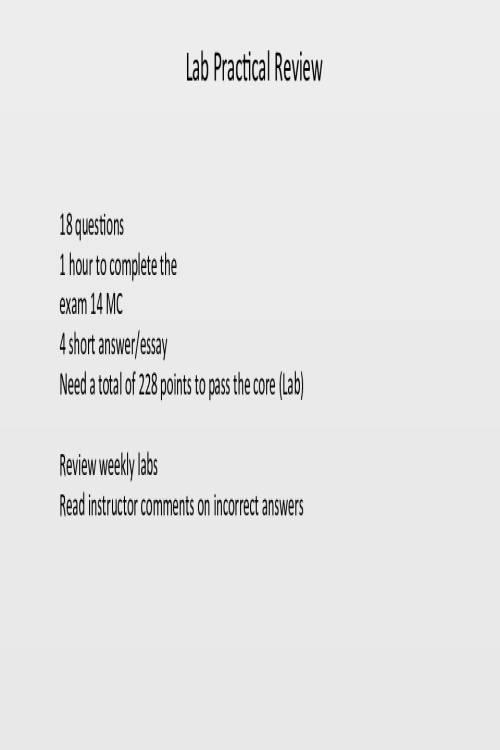CHEM 120 Week 7 Virtual Lab; Part I, Part II, Part III
Virtual Lab Week 7: Introduction to Food Macromolecules Learning Objectives Understand the types of macromolecules found in food Understand the structure of carbohydrates, proteins, and lipids Detect macromolecules in food samples Introduction Macromolecules are very large molecules created by the polymerization of small units called monomers. Most of the macromolecules are present in everyday life, for instance in food. Learn about biological macromolecules There are several types of biological macromolecules: carbohydrates, proteins, lipids and nucleic acids. All macromolecules, except lipids, are polymers. A polymer is a long molecule composed of chains of monomers. Monomers are small molecules that serve as building blocks of polymers. In addition, there are also oligomers in nature. Oligomers are molecular complexes composed of a few monomer units, instead of the theoretical unlimited number of monomers. Dimers and trimers are oligomers composed of two and three monomers, respectively, such as lactose in milk for instance. However, in biochemistry, an oligomer usually refers to a macromolecular complex formed by non-covalent bonding of a few macromolecules, such as nucleic acids or proteins. An example is the oligomers found in many neurodegenerative diseases, such as the alpha-synuclein aggregations in Parkinson’s disease. Help your friend with your macromolecule knowledge In the Introduction to Food Macromolecules simulation, you wi
Related Products
CHEM 120 Week 1 Discussion Option 1; Scientific Method and Atomic Structure
Contributor: Ellyse Perry
$10
CHEM 120 Week 1 Discussion Option 2; Scientific Method and Atomic Structure
Contributor: Ellyse Perry
$10
Related Products
CHEM 120 Week 1 Discussion Option 1; Scientific Method & Atomic Structure
Contributor: Ellyse Perry
$10
CHEM 120 Week 2 Concepts; Understanding the Structure and Naming of Molecules
Contributor: Ellyse Perry
$20
CHEM 120 Week 2 Discussion; Atomic Structure - Methyl Salicylate C8H8O3
Contributor: Ellyse Perry
$10
CHEM 120 Week 5 Discussion; Organic Chemistry - Dichloro-diphenyl-trichloroethane
Contributor: Ellyse Perry
$10
CHEM 120 Week 4 Discussion; Chemistry in the World Around Us - Shampoo Solution
Contributor: Ellyse Perry
$10
CHEM 120 Week 4 Discussion; Chemistry in the World Around Us - Vinegar that contains acetic acid
Contributor: Ellyse Perry
$10
CHEM 120 Week 7 Assignment; Group Project - Stoichiometry & Dosage Calculation (CO 4)
Contributor: Ellyse Perry
$20
CHEM 120 Week 6 Discussion Option 1; Radiation; Radioactive Isotope; Cobalt-60
Contributor: Ellyse Perry
$10
CHEM 120 Week 6 Concepts; Nuclear Chemistry, Energy, and Biochemistry Part 1
Contributor: Ellyse Perry
$20
CHEM 120 Week 6 Discussion Option 2; Radiation - Internal Radiation Treatment; known as Brachytherapy
Contributor: Ellyse Perry
$10
CHEM 120 Week 7 Discussion; Flow of Genetic Information - Controversial Genetic Technology Known as Sex Selection
Contributor: Ellyse Perry
$10
CHEM 120 Week 7 Discussion; Flow of Genetic Information - Genetics in Forensic Science
Contributor: Ellyse Perry
$10
CHEM 120 Week 7 Assignment; Group Project; How vitamins and mineralstrace elements affect healthhuman body (CO 3)
Contributor: Ellyse Perry
$20
CHEM 120 Week 7 Assignment; Group Project; Corrosion of Plumbing, Erosion of Confidence
Contributor: Ellyse Perry
$20
CHEM 120 Week 8 Discussion; Wrap-Up (Health effects of Radiation on the Human Body)
Contributor: Ellyse Perry
$15
